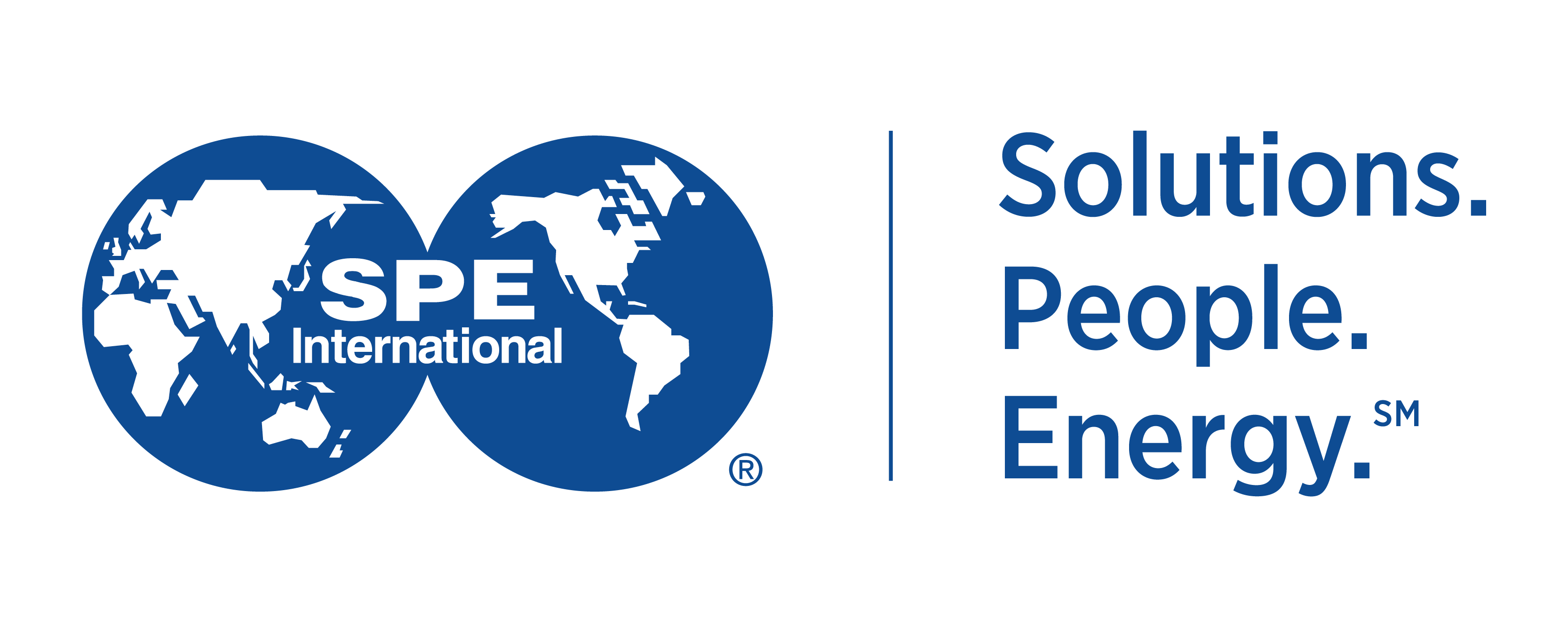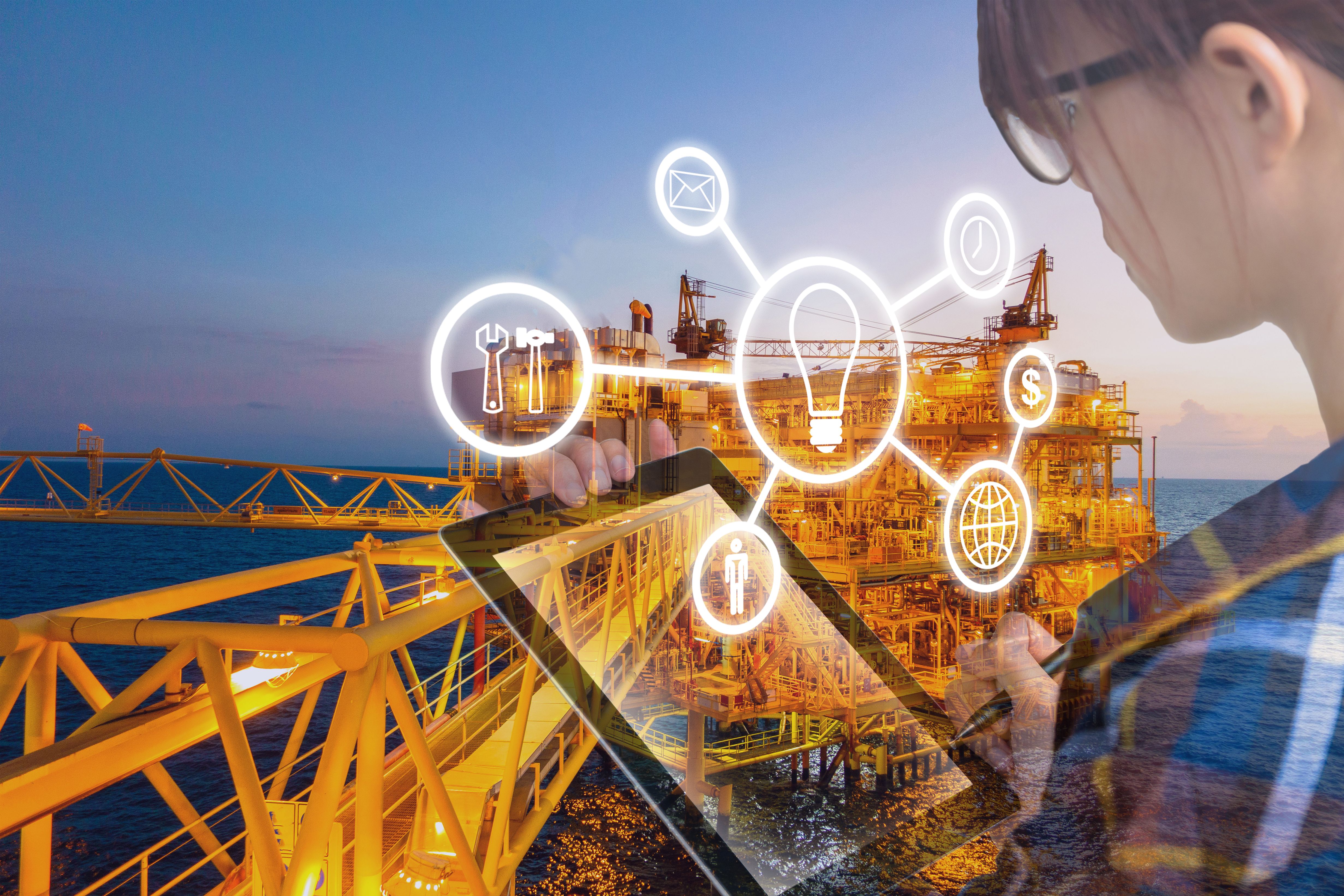-
Foyer of Grand Ballroom, Level 360 mins
-
Grand Ballroom, Level 315 mins
-
Grand Ballroom, Level 345 mins
- Opening & Keynote
-
Foyer of Grand Ballroom, Level 330 mins
-
Grand Ballroom, Level 390 mins
- Panel Sessions
This panel will examine the transformation of E&P through the adoption of digital technologies. It addresses how these advancements are reshaping traditional workflows and the ways in which employees are updating their skills to leverage these innovations effectively. Furthermore, the session will explore approaches for long-term digital projects, ensuring that these technologies are seamlessly integrated into the daily operations of the oil and gas industry.
-
DDAA blueprint
-
Talent management
-
Long-term management and continuous improvement
-
Challenge of technology adoption and change management
-
Strategic and vision
-
DDAA as the new operating infrastructure
-
Cost reduction, long term maintenance
-
Scalini Restaurant, Level 260 mins
-
Grand Ballroom, Level 390 mins
- Technical Sessions
Session Managers: Daiye Zheng, SLB; Hadi Hamzah, PETRONAS; Ilhan Akbar, Halliburton
Digital transformation is a cornerstone for organisational growth in the Asia-Pacific region (APAC). Unlocking the true potential of this transformation hinges on robust data management practices which delves into three critical aspects of data management – data structure, architecture, and governance – and explores how these elements pose unique challenges for APAC organisations. The vast and diverse nature of data in APAC presents a significant challenge. Legacy systems, siloed data storage, and inconsistent data formats create roadblocks for seamless data integration and analysis. Organisations still struggle to establish a standardised approach to data structure, hindering the ability to extract meaningful insights. Selecting the right data architecture – a centralised data warehouse, a decentralised data lake, or a hybrid approach – is crucial for efficient data management in APAC. Organisations must consider factors like data volume, regulatory compliance needs, and scalability requirements when designing their data architecture. APAC's dynamic regulatory landscape further complicates this decision, making it essential to choose an architecture that can adapt to evolving regulations. Effective data governance ensures the accuracy, security, and accessibility of data. However, establishing clear ownership, access controls, and data quality standards proves challenging in many APAC organisations. Limited data literacy among employees and a lack of centralised data governance frameworks can lead to data misuse, privacy breaches, and unreliable decision-making. Abstract submitted should cover topics of overcoming these data management challenges is critical for successful digitalisation in APAC and potentially sharing on implementation of a data-centric strategy with well-defined structures, architectures, and governance practices, organisations can unlock the true power of their data and fuel sustainable growth in the digital age.
Discussion Leaders:
- Enhancing Carbon Capture & Storage Data Management: A Novel Integration Of AI, Digital Technologies, And Cross-Industry Standard Process for Data Mining Framework by Adam Daniel bin Effendi, AEM Energy Solution Sdn. Bhd.
- A One stop Digital Solution for Enhanced Group-Wide Time and Cost Estimation by Ahmad Faris Hafizi Ahmad Pauzi, PETRONAS Carigali Sdn Bhd & Faris Arif, AEM Energy Solutions Sdn Bhd
- Importance of Data Lake and It’s Success – A Case Study by Mousumi Deka, Oil India Limited
-
Enhancing Data Integrity and Operational Efficiency in Oil and Gas Operations through Automated Data Approval Workflow by Nurizzati Ahmad, Production Operations Engineer, SENSIA
-
Foyer of Grand Ballroom, Level 330 mins
Discussion Leaders:
-
Accelerating PETRONAS Upstream Data Modernisation: Powering Production Field Lifecycle Data Digitalisation through Unified Data Submission Platform by Hew Zhong Ying, PETRONAS & Izzati Ab Kahar, Sensia
-
Log Optimization Project in GOT by Rinlita Lertkornteeranan & Jutamas Charoensuk, PTTEP
-
-
Grand Ballroom, Level 390 mins
- Technical Sessions
Session Managers: Nataphop Tiamdao, PTTEP; Syafiq Zahid, AEM Enersol; Ramdan Idris, PETRONAS
This session invites technologist, innovators and industry leaders to showcase their ground-breaking implementations, sharing success stories and critical lessons learned of Artificial Intelligent (AI) and Machine Learning (ML) solutions in the Exploration & Production (E&P) segment. Discover how cutting-edge AI and ML solutions are driving efficiency, optimising operations, and uncovering new opportunities in the E&P Business.
Discussion Leaders:
- Reflector-constrained Deep Learning for Seismic Horizon Interpretation by Wisit Promrak, PTTEP
-
Enhancing ROP with Explainable Artificial Intelligence by Botao Lin, College of Artificial Intelligence China University of Petroleum, Beijing
-
Optimising Pressure Test with Artificial Intelligence by Fahmi Amni Mustafaal Bakeri, PETRONAS
- Complex Risk Assessment of Offset Wells using Cognitive Knowledge-based A.I. by Harpal Parmar, AUI Systems
-
Scalini Restaurant, Level 2120 mins
-
Grand Ballroom, Level 390 mins
- Panel Sessions
The session will investigate how DDAA could be pivotal in creating new business and promoting sustainability within the oil and gas industry. It will highlight case studies and strategies where these technologies have significantly advanced industry practices and sustainability goals.
-
Importance of digitalisation in new business and new energy
-
DDAA for CCS
-
How digitalisation can reduce and control CO2 emissions
-
Foyer of Grand Ballroom, Level 330 mins
-
Grand Ballroom, Level 390 mins
- Technical Sessions
Session Managers: Wisit Promrak, PTTEP; Saito Naoki, Japan Vietnam Petroleum; Tanarat Kanchanachinto, Valeura Energy
This session focuses on the opportunities that Digital Data Solutions, Analytics, and Automation (DDAA) provide for enhancing marginal and mature fields in the Asia Pacific region. With the region facing the challenges of depleting reserves in conventional fields and the necessity for increased efficiency in existing assets, DDAA emerges as a key enabler for innovation and operational excellence. The session will discuss the substantial impact of DDAA on the development and enhancement of both marginal and mature fields across this region. It will present strategies for applying advanced analytics and automation to realise direct benefits, highlighting how these technologies can promote sustainable development and strengthen resilience in the Asia Pacific oil & gas sector. Additionally, the session will focus on the role of DDAA in geoscience exploration and appraisal drilling, demonstrating its effectiveness in refining operations, guiding better decision-making, and discovering new reserves, with a particular emphasis on the region's mature and marginal fields. By sharing case studies and expert insights, the session will emphasise the critical role of digital innovation in propelling the development of oil & gas fields in this region.
Discussion Leaders:
- Building Foundation for Digital Transformation by Belly Agustinus Kartika Djaya, Sensia
- Optimising Waterflood Management in Offshore Field: A Comprehensive Reservoir Management Study Using the Capacitance-Resistance Model (CRM) by Kittipong Limchuchua, PTTEP
- Key Learnings and Challenges in Implementing Digital Transformation in Medco E&P Indonesia by Satriyo Wicaksono, Medco E&P Indonesia
- Integrating Subsurface and Surface Development Strategy Study in Single Platform for Economic Evaluation, A New Close Loop Approach to Improve the Process Cycle Efficiency for Field Development and Economic Study by Tham Boon Keat, PETRONAS Carigali Sdn Bhd
-
Scalini Restaurant, Level 260 mins
-
Grand Ballroom, Level 390 mins
- Technical Sessions
Session Managers: Pattawut Manapongpun, PTTEP; Tomi Ihwanto, PT Pertamina Hulu Rokan; Jason Kok, iNNOVATEQ
The oil and gas industry is undergoing significant transformations driven by advancements in technology, including autonomous operations. IoT sensors, data analytics, and machine learning algorithms enable predictive maintenance of oil and gas assets, minimising downtime, optimising production, and reducing maintenance costs. Autonomous systems can continuously monitor equipment health, detect anomalies, and trigger maintenance activities before equipment failures occur. This session aims to showcase implementations of autonomous operations applied in brownfield and marginal fields where value has been generated.
Discussion Leaders:
- Autonomous Gas Lift Operations and Optimisation by Belly Agustinus Kartika Djaya, Sensia
- Pushing the limits – using Closed-Loop Real Time Optimization to maximize production while staying within safe operating limits by Jason Kok, iNNOVATEQ
- Enhancing ESP Surveillance with Generative AI, Continuous Integration and Continuous Delivery by Silpakorn Dachanuwattana, Valeura Energy
-
Improving Scalability in Forecast Analysis for Oil Fields: A Transition from Excel to Reservoir Analysis Software by Ramizah Abdul Rashid, SLB - Sensia
-
Foyer of Grand Ballroom, Level 330 mins
-
Grand Ballroom, Level 390 mins
- Technical Sessions
Session Managers: Sirawich Tippawanich, PTTEP; Kanokwan Kullawan, Chevron; Mohamed Ibrahim, Woodside Energy
In the rapidly evolving landscape of our industry, digitalisation projects have emerged as a key driver of value creation. However, moving from innovation to adoption requires proper scaling and deployment of these projects. This session will delve into the journey from innovation to adoption, focusing on the strategies and best practices that can enable project scaling, deployment, and adoption to maximise value creation and will explore how organisations can effectively transition from successful digitalisation experiments to full-scale enterprise deployment.
Key topics will include:
- Project Scaling: Scaling a project involves more than just increasing its size. It requires careful planning, robust infrastructure, and seamless integration with existing systems. We will explore strategies for successful project scaling, including problem framing, technology scalability, system design, and integration and interoperability.
- Deployment and Adoption Deployment is only the first step. For a digitalisation project to truly succeed, it must be adopted by the organisation. We will discuss best practices for implementing digital projects in a complex organisation, including change management and organisational readiness, talent and skill development, and governance and compliance.
- Big Impact Value Creation: We will discuss how digitalisation projects can lead to significant value creation, with a focus on digital projects examples and use cases that have enabled significant value creation through scaling and deployment.
Through this session, attendees will learn from experienced digital and data professionals about how to take digitalisation projects from proof of concept to enterprise deployment and adoption. They will be equipped with valuable insights to help them navigate the complexities, mitigate risks, and maximise the benefits of implementing digitalisation projects at scale within their organisations.
Discussion Leaders:
- Web-based Reservoir Simulation: Applications for Carbon Storage by Nikolai Andrianov, Geological Survey of Denmark and Greenland (GEUS)
- Scaling and Deploying Well Placement Optimization: An Integrated Approach via PETREL Plugin for Dynamic Modeling by Nutchapol Dendumrongsup, PTTEP
- Managing Human Acceptance towards Rapid Technology and Digital Advancement by Ahmad Haziq bin Mohd Shah Zainudin, PETRONAS Carigali Sdn Bhd
- Real-time Fuel Monitoring System by Natthaphat Akharathanaphan, Chevron Thailand E&P Co., Ltd
-
Grand Ballroom, Level 315 mins

